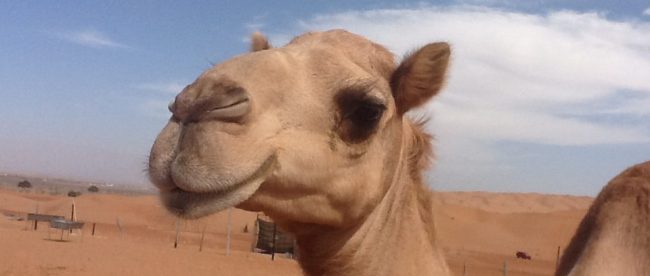The Great Saudi Beauty Pageant Scandal of 2018

If you’re in Saudi Arabia in January or February, you may have the opportunity to see some camels on parade. Each year, the nation hosts the King Abdulaziz Camel Festival, a weeks-long festival celebrating everything there is to celebrate about the humpbacked desert animals. There are camel races, camel milk tastings, and even a camel beauty pageant.
In and of itself, parading animals around so they can be judged for their beauty isn’t all that strange — in the United States, for example, the Westminster Kennel Club Dog Show has been around since 1877, attracting fans from near and far. Similarly, the King Abdulaziz Camel Festival is a major attraction; more than a quarter-million people attended in 2018, hoping to catch a camel race or see a particularly beautify camel on display.
Some of them almost saw cheaters instead.
When it comes to camels, beauty isn’t really in the eye of the beholder. The criteria that judges focus on is well-established; per the Guardian, “the key attributes in camel beauty are considered to be delicate ears and big nose,” while other sources note the importance of a large, pronounced lower lip. And for the camel breeders, the festival isn’t just for bragging rights — hardly. There’s big money to be won. There are more than $50 million up for grabs in the camel races and pageants, with the latter group competing for more than $30 million of that, per NPR.
In other words, camel breeding is big business. But it isn’t always an honest one. While a camel may have a naturally large head, puffy lips, or those perfect ears, there are other ways for a breeder to achieve the same effect. And, while “there are strict rules against the use of drugs in the lips, or shaved or clipped body parts,” continues the Guardian, sometimes the rules get broken. And that’s exactly what happened in 2018.
As the National (a UAE publication) explained, “days before [the 2018 event] started, Saudi media reported that a veterinarian was caught [ . . . ] performing plastic surgery on camels. At his clinic, camels were not only given botox but went under the knife to reduce the size of their ears.” They were beautiful camels by the standards of area, but their beauty came artificially. And that was a no-no.
The rules state that “in case of fraud to change the natural form of participating camels, the participant shall be excluded immediately, with the offender being deprived of participation in this session and at least next five sessions of the Festival,” but that’s only after an investigation. And that’s a necessary step: it is common for breeders and veterinarians to defraud the ultimate purchaser, modifying the animals without informing their customers. But when it comes to the camels themselves, organizers reacted quickly and decisively. In total, a dozen camels were identified through this sting operation. All twelve were disqualified from the competition.
Bonus fact: Google outfits cars with special cameras in order to make the Street View version of Google Maps. That won’t work in the desert, though — no roads — so they need other solutions. For the Liwa Desert in the UAE, the solution? A camera-equipped camel named Raffia. According to the Guardian, “Raffia and her guide took to the sand as early as 6 am in the morning to ensure the best lighting conditions. The resulting film and still photographs show the desert’s rolling sand dunes, an oasis, fellow camels, scuttling sand and [of course!] some gangly camera-and-camel shadows.”
From the Archives: Miss USA… For a Day: A (human) beauty pageant scandal.
